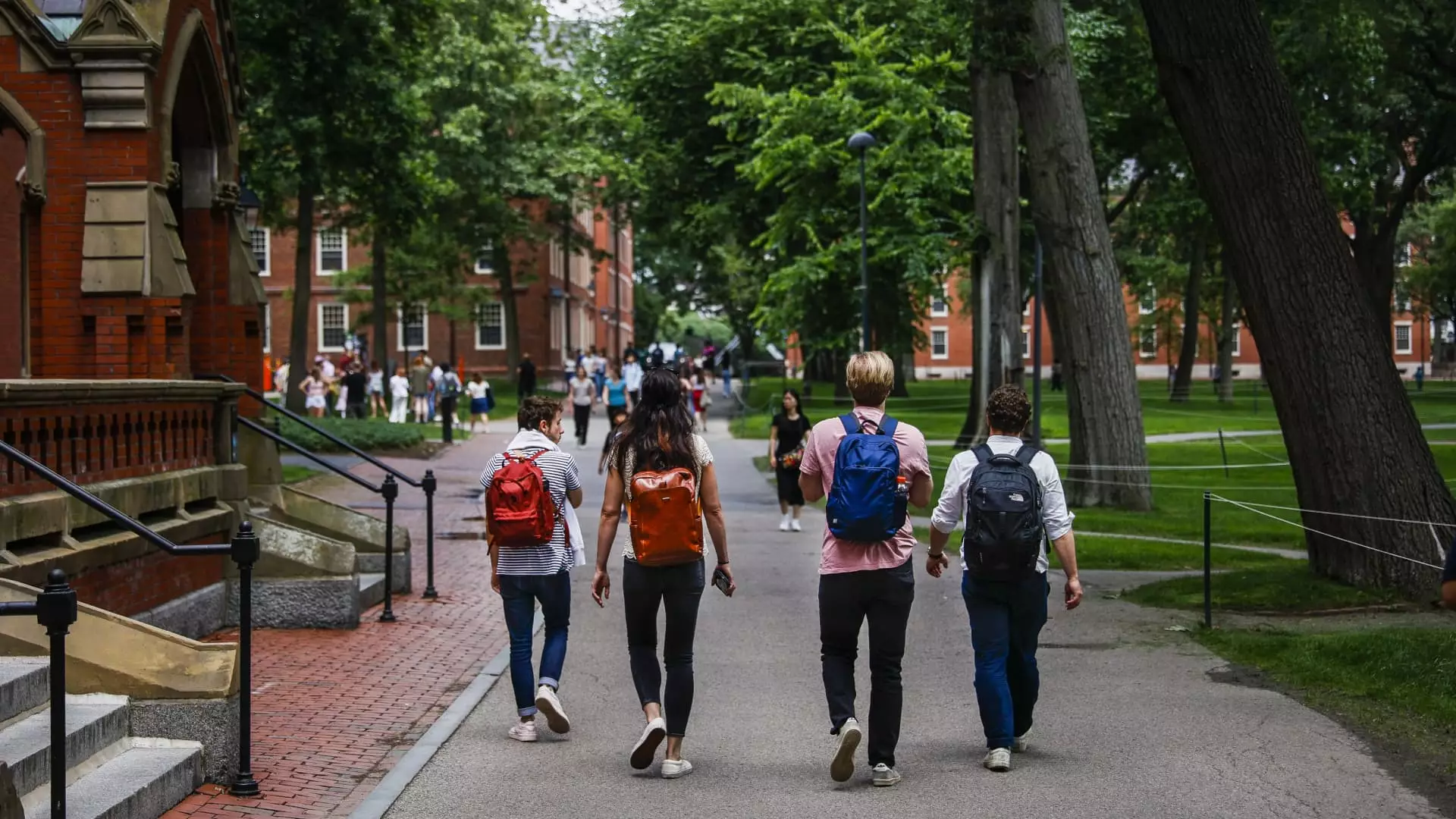As a nation that prides itself on being a melting pot, the U.S. continues to find itself at the epicenter of a perilous clash between federal authority and academic freedom. The current turbulence surrounding international student visas, particularly at institutions like Harvard University, serves as a dire warning about the economic fallout of reckless anti-immigrant policies. In the 2023-24 academic year alone, international students injected a staggering $43.8 billion into the U.S. economy, and policies that jeopardize this financial lifeblood offer little more than a short-sighted gamble with far-reaching consequences.
With Massachusetts alone reaping nearly $4 billion and supporting more than 35,000 local jobs through its international student populace, the stakes couldn’t be higher. Harvard itself houses around 6,000 international students, accounting for a striking 27% of its total enrollment. This demographic isn’t merely an academic curiosity; it’s an economic powerhouse. The significance is clear: any disruption to this vital revenue stream could ripple through Boston and New England, destabilizing local economies and striking a disproportionate blow to businesses reliant on student spending and engagement.
The Economic Ripple Effect
When Harvard’s international student enrollment is threatened, it’s not just a local issue—it’s an economic chain reaction waiting to unfold. Bjorn Markeson, an economist from Implan, highlighted the interconnectedness of our economy, emphasizing that dollars spent do not remain stagnant. If the flow of international students is curtailed, the repercussions will extend beyond campus walls, impacting everything from local retail to housing markets. The ripple effect embodies an insidious form of economic ignorance: undervaluing the substantial contributions of foreign students in favor of a dangerously populist political agenda.
The argument made by some federal authorities—driven by an agenda of exclusion rather than inclusion—disregards the broader implications of this stance. The flow of international students enhances the educational environment for all. Robert Franek of The Princeton Review aptly pointed out that these students enrich the overall student body, fostering diversity of thought, culture, and innovation. This isn’t just altruism; it’s critical for the survival and advancement of American higher education. When we welcome international students, we cultivate a richer and more intricate learning experience for domestic students, a fundamental aspect of any world-class education.
A Troubling Precedent
The skirmish between Harvard and the Trump administration over the protection of international students raises serious ethical concerns, particularly as the narrative surrounding immigration continues to be politicized. A refusal to engage with international candidates based on national origin is not just discriminatory; it suggests that the U.S. is willing to sacrifice its educational superiority and economic stability on the altar of xenophobia. Such actions undermine centuries of tradition in American academia, where diversity is not merely a buzzword but the foundation upon which innovative thought and progress are built.
Recent attempts by the Trump administration to impose restrictive measures on Harvard’s enrollment practices are not just a threat to the university’s reputation; they represent a concerning national trend. A temporary restraining order issued by a federal judge only delays the inevitable confrontation between these entities. The very act of targeting Ivy League institutions sends a message to the world: the U.S. is retreating into an insular mindset that prioritizes ideological conformity over intellectual growth and global engagement.
What Lies Ahead?
As the situation continues to evolve, Harvard’s contingency planning illustrates a commitment to maintaining its international student body, but the challenges ahead remain steep. The Biden Administration’s response—or lack thereof—will be pivotal in either extinguishing or igniting these tensions further. While Harvard President Alan Garber vows to protect the university’s international scholars, the onus should also be on the federal government to reflect on the long-term ramifications of its policies.
At a time when the world is becoming increasingly interconnected, it is shortsighted to allow fear and prejudice to dictate educational policy. As centers of learning, universities like Harvard should not be entangled in political battles rooted in exclusion. Instead, let them be bastions of innovation and diversity, safeguarding their mission to educate not only Americans but students from around the globe. The future of American higher education—and by extension, the economy—depends on it.

